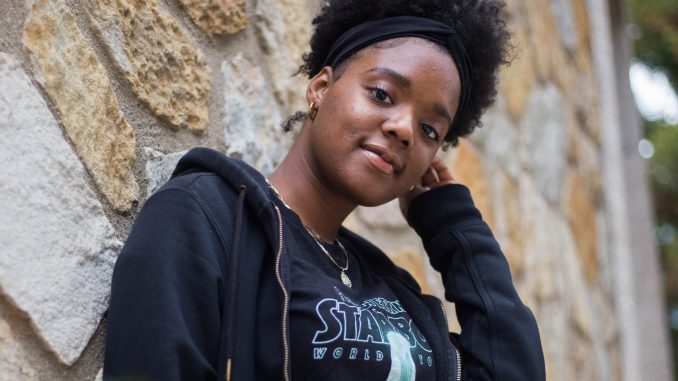
Growing up, I attended primarily white schools with barely any kids who looked like me. Being a Black girl in these schools took a toll on how I viewed myself and perceived beauty.
At the time, I didn’t know what made me dislike the way my curly hair stood out in class photos or the protective hairstyles my mother gave me. All I knew was that I wanted a change — to feel normal among my peers or to have a day where I felt like my hair was just as pretty as every other girl’s in my class.
In middle school, I asked my mom to let me get a relaxer, a hair treatment that chemically alters the curl pattern of your hair, making it completely straight. I thought I found the solution to beauty.
For years I kept this routine going, chemically changing my natural hair to make it bone straight. I no longer worried about standing out from my classmates or answering questions about my hair.
I was happy — until I wasn’t.
Relaxers damaged my hair. The chemical treatments altered my hair’s natural texture to a permanently straightened state by breaking the disulfide bonds found inside each hair fiber and reshaping them. Relaxed hair is prone to thinning, breakage, scalp irritation and more. Not only did I erase the natural state of my hair, I damaged it — and, for what?
In my freshman year of high school, my perspective changed. After years of relaxers and salon visits, I began asking myself why I started getting relaxers in the first place.
I had grown so accustomed to my chemically processed hair that I forgot what my curls looked and felt like. I started to realize I wanted a relaxer because I thought my natural hair wasn’t pretty and because I wanted to fit in. I viewed European beauty standards as the rulebook for all things pretty.
These views were wrong. Being different and standing out made me, me.
I finally let myself acknowledge this when I took on the “big chop,” cutting off all of the relaxed parts of my hair, two weeks before my freshman year at Temple.
Initially, I was shocked. My natural hair was shorter than ever before. It was curly and soft, which was new for me.
Doing the “big chop” forced me to care for my hair in an entirely new way. I went through trials and errors to find new products, like leave-in conditioners, that suited my new strands. But I finally saw my hair for what it actually was.
The experience of leaving relaxers to care for my natural hair sent me on a rollercoaster of emotions. I had to be uncomfortable at first, and then learn how to care for my hair.
I met other people with natural hair at Temple whose guidance made the transition easier.
What made this experience so beautiful was learning to love my authentic self.
The natural hair movement ignited the process of finding myself and helped me discover exactly what made me want to hide it in the first place. It’s much easier to be yourself than pretend to be something you’re not. For me, that was my hair.
The journey to natural hair is different for everyone and can be done for various reasons. Not having natural hair does not mean a person is unhappy with themselves or is trying to fit into a beauty standard. Not all journeys are the same, and that is OK.


Be the first to comment